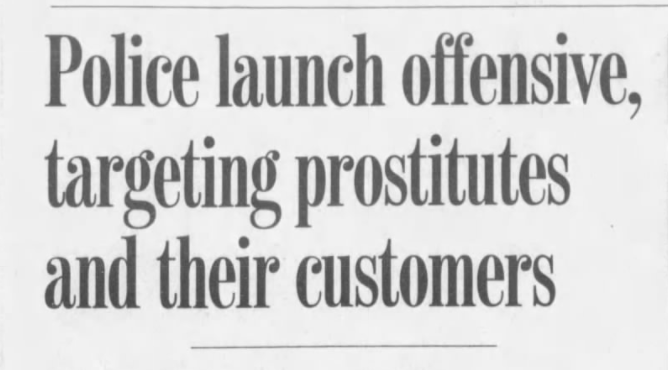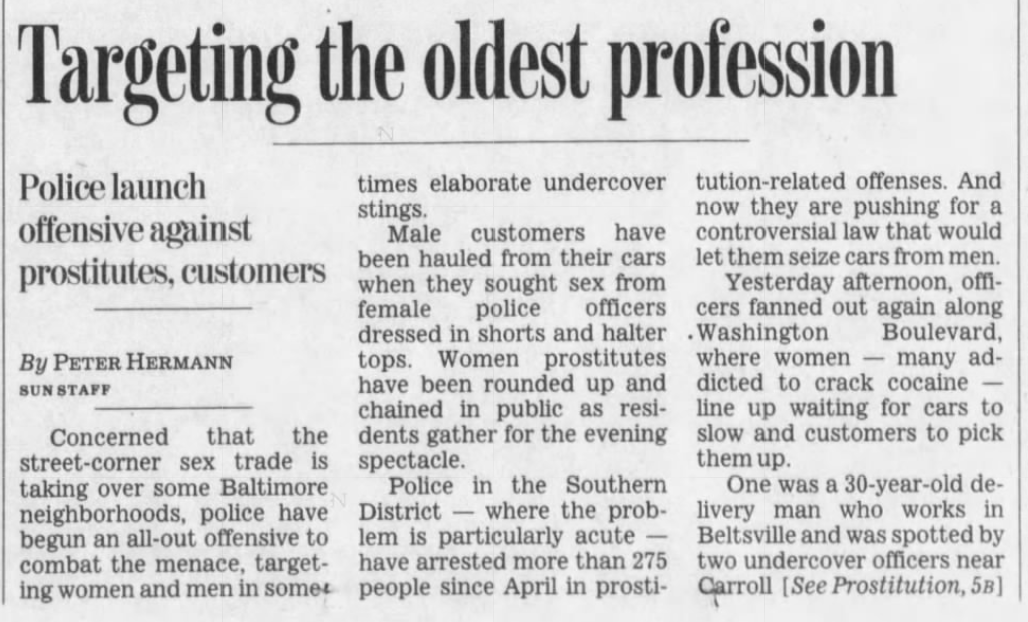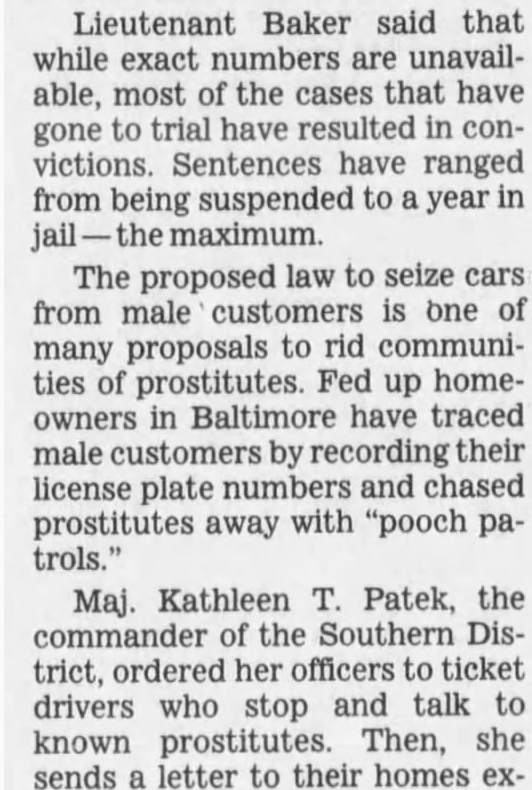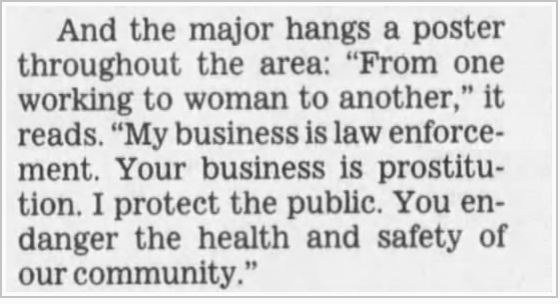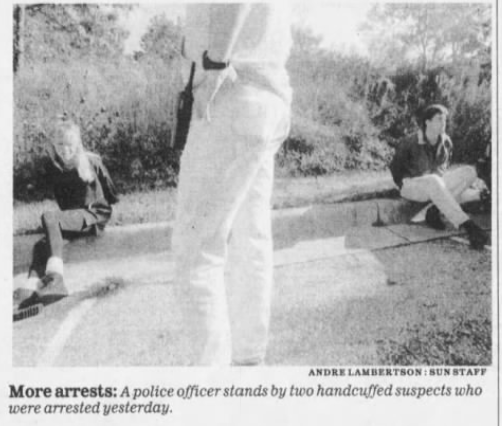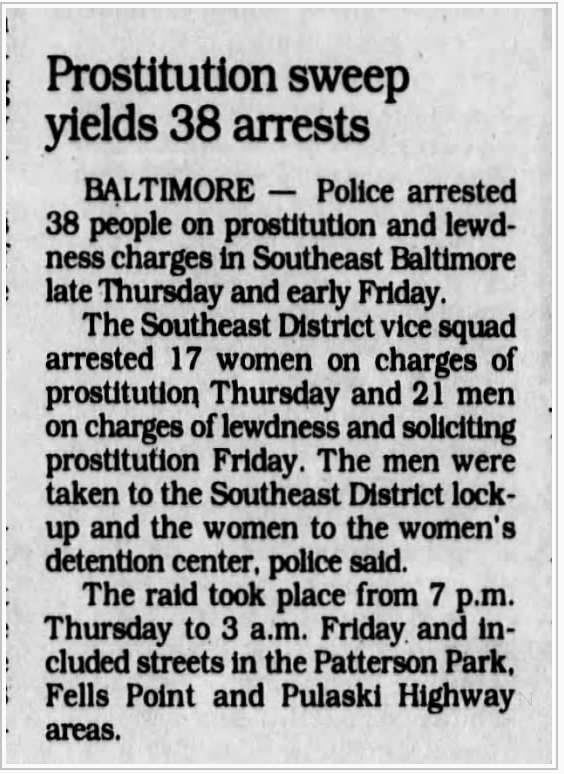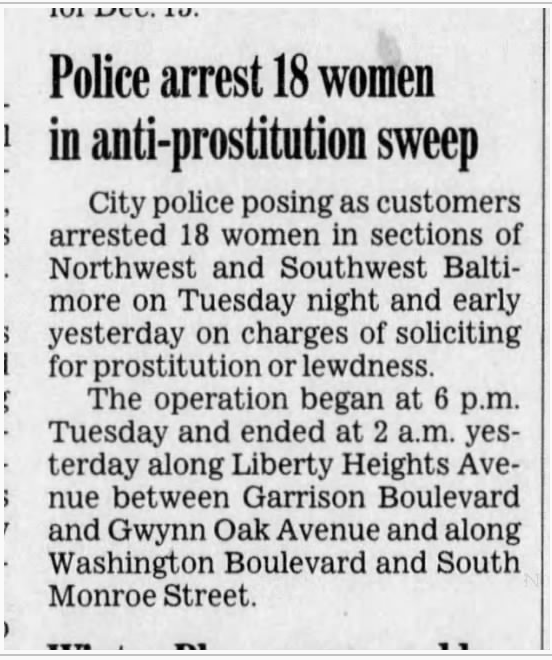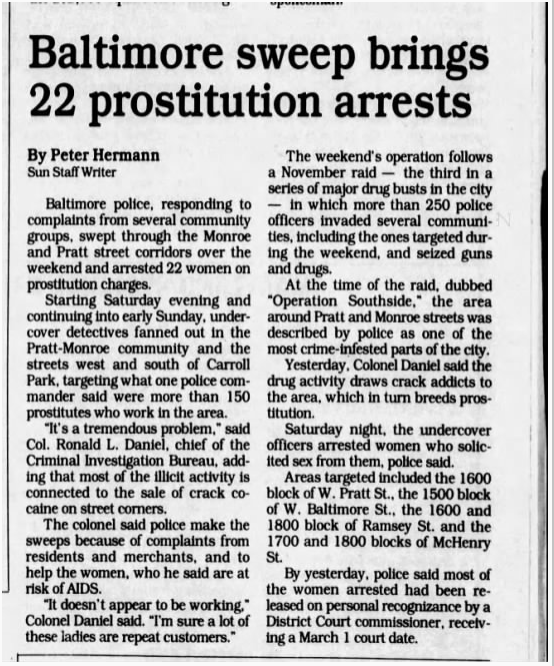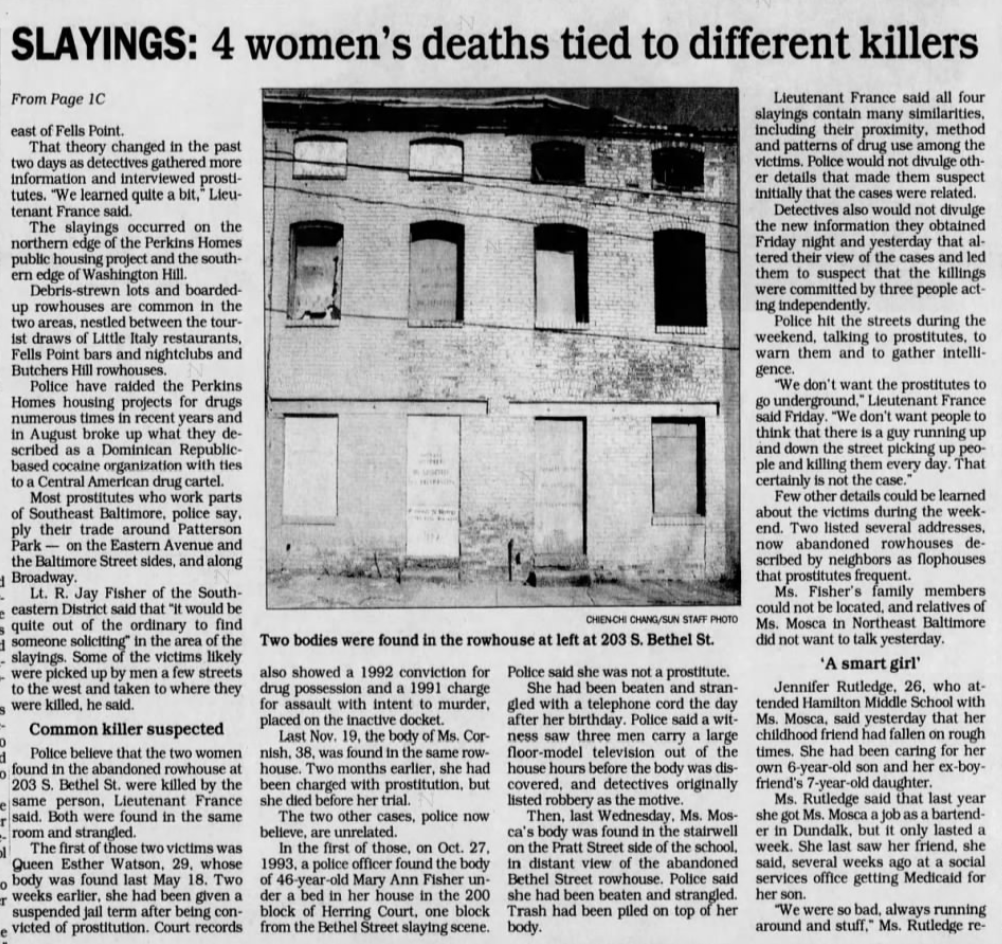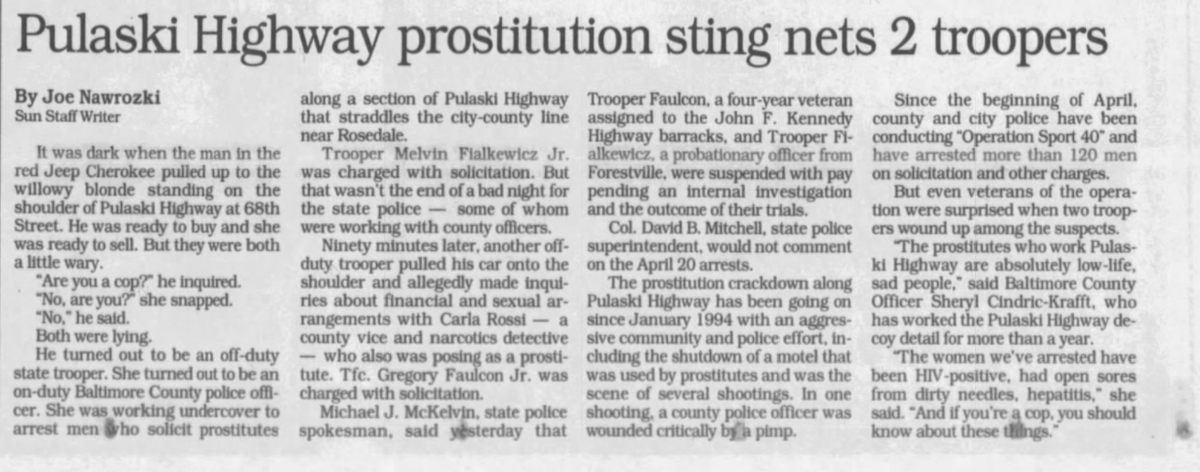While the Nordic model is once again in headlines, one may look to other instances in which sex workers' clients faced increased surveillance and criminalization to "end demand." This was a method used in Baltimore in the mid-1990's, though accompanied by arrests of workers.
Of course, solicitation is illegal in our current model, but, as many note, clients are generally not as impacted by it. Baltimore officials "begun an all out offensive, targeting women and men in sometimes elaborate undercover stings."
Though not permitted to seize cars used in drive by shootings, officials attempted to push a bill that would allow seizure of cars of clients of sex workers, the idea being that not wanting to have to go through this ordeal and explain it to their wives would be a deterrent
In the meantime, other tactics were used: "Maj. Kathleen T. Patek, the commander of the Southern District, ordered her officers to ticket drivers who stop and talk to known prostitutes. Then, she sends a letter to their homes explaining why they were stopped."
She also addressed the workers themselves: "the major hangs a poster throughout the area: "From one working to woman to another," it reads. "My business is law enforcement. Your business is prostitution. I protect the public. You endanger the health and safety of our community."
The combination of scorn and humiliation was not limited to the police, however. When police invited residents to watch the public arrests of sex workers (and at times, clients) they took part. (1)
*Images blurred for privacy
*Images blurred for privacy
(as an aside, these images are from the same @baltimoresun article in which it states the women were angry & embarrassed by this... it's never too late to apologize for unethical photojournalism, exploiting vulnerability, or a donation to @SWOPBaltimore) https://baltimore.swopusa.org/donate/
So, how did all of this work out? On November 3, it was reported that 286 people in just the Southern District alone had been arrested for sex work since that April (2) (3) (4) (5)
With their names published in newspapers after arrests as well as the material conditions that led many of these people to choose this work in the first place, one can imagine that returning to sex work was the most reasonable choice for many of the arrested workers.
When a murderer targeted sex workers in the area, police stated that "we don't want the prostitutes to go underground" or worry, seemingly oblivious to how their rhetoric of "cleaning the streets" may have contributed to this dynamic, and offering no further resources (7)
Based on the data that year and years following, one may come to the conclusion that sex work did not end in Baltimore, MD. In fact, even the police force that allegedly wanted to end it engaged in it, as any worker could have predicted (8)
1. "Targeting the Oldest Profession," The Baltimore Sun, 03 Nov 1995
2. "Police Offensive Targets Prostitutes," The Baltimore Sun, 03 Nov 1995
3. The Baltimore Sun, 22 Jan 1995
4. The Baltimore Sun, 16 Nov 1995
5. The Baltimore Sun, 17 Jan 1995
7. The Baltimore Sun, 19 Mar 1995
2. "Police Offensive Targets Prostitutes," The Baltimore Sun, 03 Nov 1995
3. The Baltimore Sun, 22 Jan 1995
4. The Baltimore Sun, 16 Nov 1995
5. The Baltimore Sun, 17 Jan 1995
7. The Baltimore Sun, 19 Mar 1995
8. The Baltimore Sun, 29 Apr 1995

 Read on Twitter
Read on Twitter